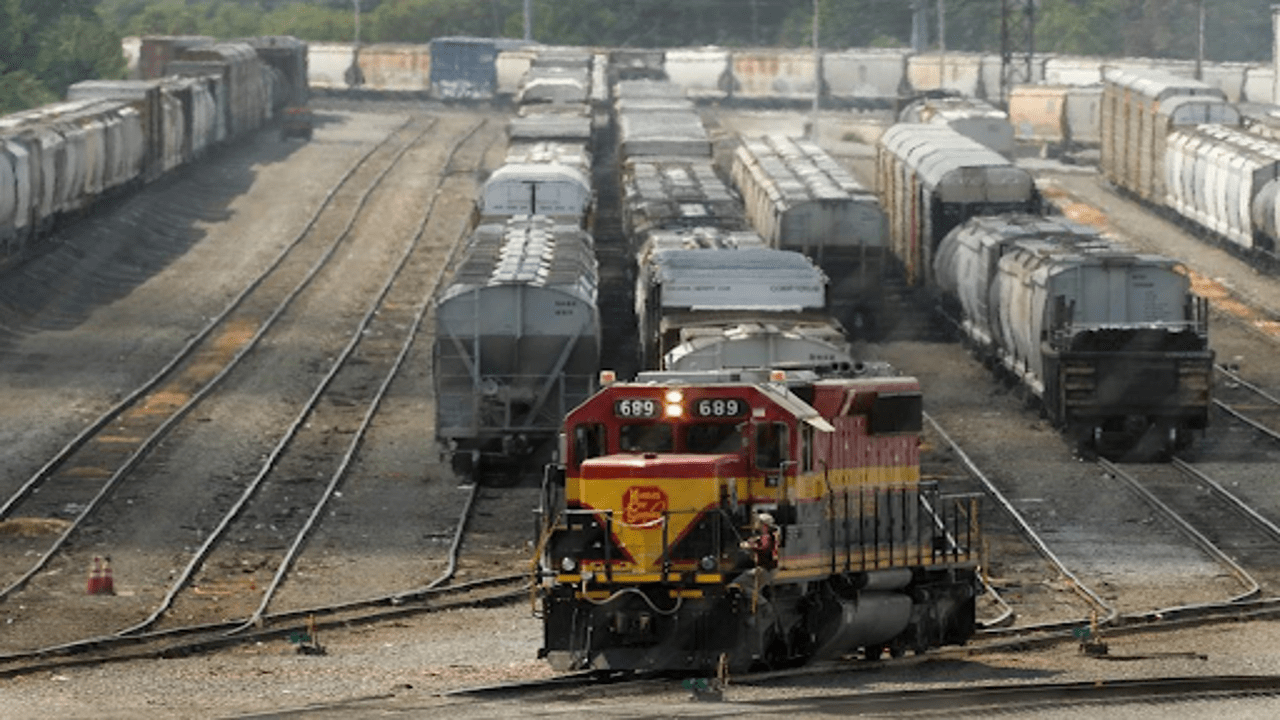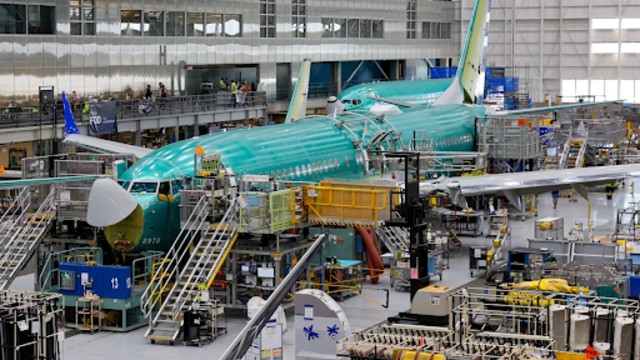
A worker climbs aboard a locomotive at a CPKC rail yard Wednesday, Aug. 21, 2024, in Kansas City, Mo. (AP Photo)
TORONTO— Both of Canada’s major freight railroads have halted operations due to a contract dispute with their workers, posing a significant risk of economic disruption for businesses and consumers in both Canada and the U.S. Canadian National (CN) and Canadian Pacific Kansas City (CPKC) both locked out their employees after negotiations with the Teamsters Canada Rail Conference failed to yield new agreements by the 12:01 a.m. Eastern Thursday deadline. This union represents around 10,000 engineers, conductors, and dispatchers.
The work stoppage means all rail traffic within Canada and shipments crossing into the U.S. have ceased, though CN and CPKC will continue to operate their trains within the U.S. and Mexico. The U.S. Department of Transportation notes that billions of dollars in goods are transported monthly between Canada and the U.S. by rail.
Jay Timmons, president and CEO of the National Association of Manufacturers, warned of severe consequences if the rail traffic does not resume soon. “If rail traffic grinds to a halt, businesses and families across the country will feel the impact,” Timmons said, noting that the disruption could severely affect manufacturing workers and supply chains.
The shutdown also impacts over 30,000 daily commuters in Vancouver, Toronto, and Montreal, who will now need to find alternative transportation. Despite calls from business groups for government intervention, Prime Minister Justin Trudeau has not yet pushed for forced arbitration.
CN and CPKC had been progressively shutting down their operations in anticipation of the contract deadline. Shipments of hazardous chemicals and perishable goods were among the first to be stopped to prevent them from being stranded.
The negotiations between CN and the Teamsters had been ongoing for nine months, while CPKC had been negotiating for a year. Both railroads have expressed a willingness to end the lockout if the union agrees to binding arbitration.
In the U.S., CSX, a major rail carrier, recently reached individual agreements with several unions, breaking from the industry norm of joint negotiations. These new five-year contracts include raises and improved benefits, and CSX’s ability to settle before national bargaining starts later this year highlights the differences in how labor disputes are handled.
Prime Minister Trudeau has expressed concern over the potential economic fallout of a prolonged rail shutdown and has urged both sides to reach an agreement quickly. Labor Minister Steven MacKinnon has been involved in discussions with both CN and CPKC, emphasizing the need for urgency.
The current dispute centers on issues related to worker scheduling and rest regulations. Both railroads proposed changes from a mileage-based pay system to an hourly system to provide more predictable time off. The railroads argue that their contract offers include raises consistent with recent industry standards.
The shutdown could have a cascading effect on industries relying on rail transport. Manufacturing companies might have to scale back or halt production, ports and grain elevators could become congested, and water treatment plants might face shortages of essential supplies like chlorine.
Victor Pang, CFO of the Vancouver Fraser Port Authority, highlighted the risk of terminal congestion if goods from ships cannot be processed due to halted rail services. The impact of such a disruption could be severe, echoing the challenges faced during a 13-day strike by British Columbia dockworkers last summer.
While some companies may turn to trucking to move their goods, the volume railroads handle is immense—one train can carry the equivalent of about 300 trucks.















